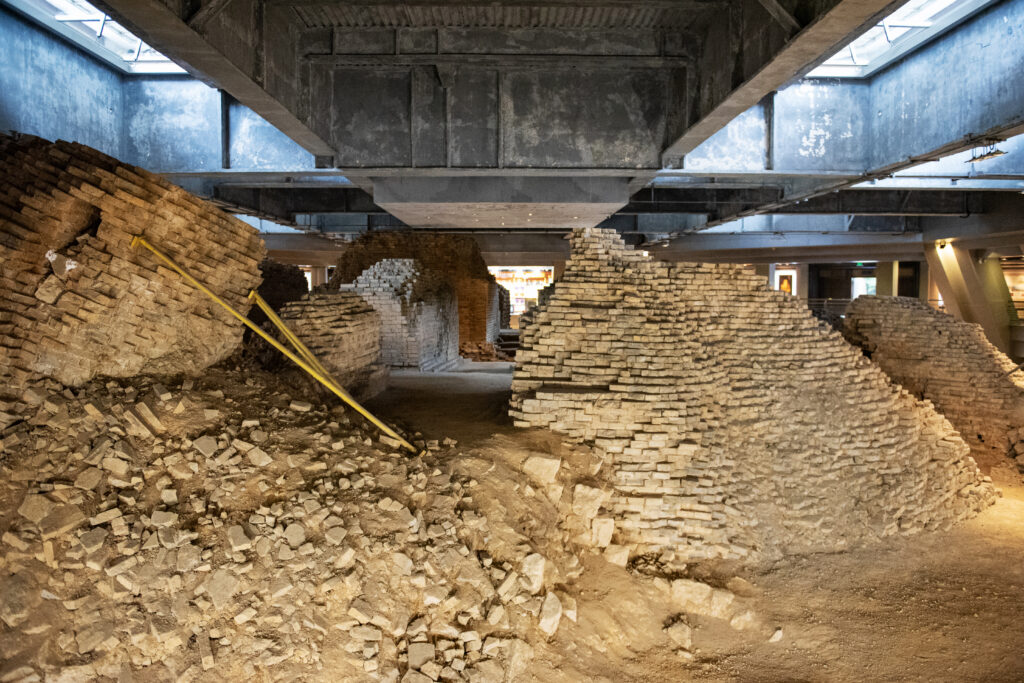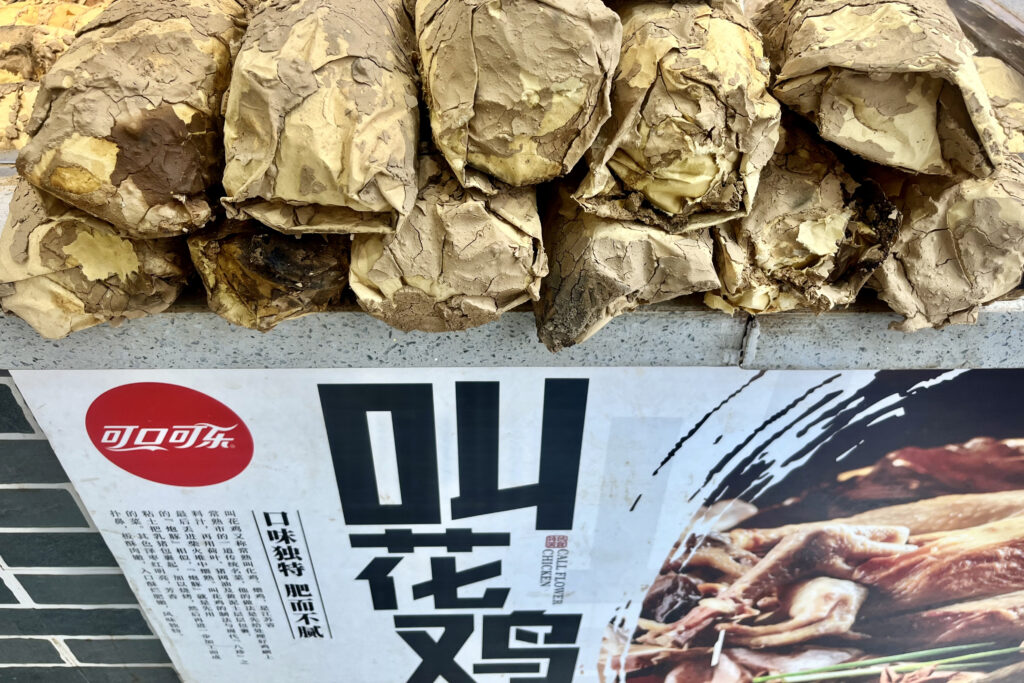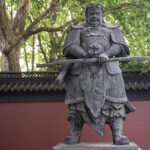June 16, 2023
Mandarin Immersion (Part 33)
By Simon J. Lau



I visited Leifeng Pagoda, constructed in the 10th century during the Five Dynasties and Ten Kingdoms period. This was a notable period of political instability in China’s history, where five dynastic states ruled and collapsed in quick succession.

This construction was ordered by Qian Chu, King of Wuyue, for his favorite concubine. The original pagoda collapsed in 1924 but was rebuilt in 2002. The original foundation, however, can still be viewed from below. (The image in this section is part of the public domain and was taken in 1910. Author is anonymous.)


In the afternoon, I tried beggar’s chicken. This is a chicken-stuffed dish, usually wrapped in clay and lotus leaves. It’s a popular meal throughout China, and many regions have claimed this recipe as their own. However, most experts agree it originated from here in Hangzhou.
I didn’t initially think that I could finish this meal, but this was a rare instance where my stomach was larger than my eyes! I ate everything: head, feet, body, and all! I was so pleased with myself that to celebrate, I took a long afternoon nap. 😴

Finally, I returned to the burger bar from yesterday, Black Hole Elixir. I chatted with two graduate engineering students who were seated next to me. They overheard me talking about my travels and wanted to learn more. They both attended Zhejiang University. This is one of the top 5 colleges in China, and I made sure to heap praise on them.
The Chinese are very attuned to college rankings, as being able to attend a top university would be considered among a person’s life achievements. Unfortunately, they were still very concerned about their future job prospects. It’s no secret that the Chinese economy has slowed substantially over the last decade. COVID made it worse, but there are now clear long-term underlying cracks in the economy, such as ballooning government debt, an aging population with a sharply declining working-age population, and weakening real estate and tech segments. This has caused youth unemployment, particularly among the college-educated, to be at its highest recorded levels. There is no easy solution here.

After the grad students left, I spent time speaking with my bartender. She asked what my thoughts were of China, now that I’ve spent quite some time here. I thought about it for a moment, then mentioned that my greatest surprise was the Chinese people’s strong desire for safety.
Most everything in Chinese society is grounded in and revolves around the need to achieve a high level of safety, from high-tech AI facial recognition software for security to a high household savings rate. This preference strongly permeates throughout Chinese society. Although China has had a long and storied history, it has also been marred by long periods of chaos, such as warring states, foreign occupation, and the Mao era’s political, social, and economic instability. These collective memories of unrest have created an intense desire for safety.
She was surprised that I would find this particularly noteworthy. However, I explained that given America’s relatively short history and mostly stable existence, we don’t value stability in the same way. Above all else, we value our individual freedoms. That’s why Chinese and Americans often can’t see eye-to-eye on many issues, especially social issues. This is something that, given our very different cultural histories and personal experiences, we could both understand.




Comments are closed.